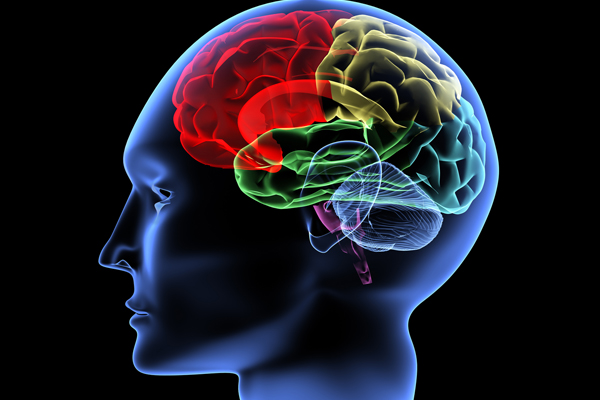Updated March 25, 2014.

A study by UCLA psychologist, Matthew Lieberman, shows how meditation works. Psychologists have long believed that if you talk about your feelings, you’re generally better at controlling them. However, not so long ago, they didn’t understand why. Meditation techniques are designed to help people pay attention to their emotions without attaching strong reactions to them. This makes them better at emotional control.
During the study, 30 participants were connected to MRI machines. They had their brains scanned to reveal which parts were active and inactive at certain times. They were asked to look at photos of faces making emotional expressions. Below the photos, they were given a choice in how to label the photos. They could either describe the emotion in words, e.g. angry or fearful, or they could give two possible names for the people in the photos. During the experiment, the participants were asked to choose the most appropriate emotion or name to fit the face in the photo.
Brain scans reveal how emotional control works
From LiveScience.com:
When the participants chose labels for the negative emotions, the area of the brain associated with thinking in words about emotional experiences became more active (the right ventrolateral prefrontal cortex region). In contrast, activity in the amygdala, a brain region involved in emotional processing, was calmed.
Interestingly, when the subjects picked appropriate names for the faces, the brain scans revealed none of these changes. This indicated that only emotional labeling makes a difference.
In a second experiment, the same participants were asked a series of questions to define how “mindful” they are. One common technique used by mindful meditators is to label their emotions to help let go of them. When the researchers compared brain scan results between those who were more mindful against those who were not, they found a big difference:
…the mindful subjects experienced greater activation in the right ventrolateral prefrontral cortex and a greater calming effect in the amygdala after labeling their emotions.
“These findings may help explain the beneficial health effects of mindfulness meditation, and suggest an underlying reason why mindfulness meditation programs improve mood and health,” said David Creswell, a UCLA psychologist who led the second part of the study.
Do you want to gain better emotional control? Use meditation and mindfulness to acknowledge and name what you’re feeling.


